main navigation start
Toggle navigation
main content start
Search Filters
Sharex Sites List
Language
Topics
Topics
- Accountability (3)
- Adolescents (39)
- Birth Registration (1)
- Breastfeeding (20)
- Cash Transfer (3)
- Child and youth participation (19)
- Child Health (236)
- Child labour (4)
- Child marriage (18)
- Child Poverty (10)
- Child Protection (50)
- Children in alternative care (5)
- Child Rights (17)
- Climate, Energy and Environment (56)
- Community engagement (89)
- Convention on Child Rights (2)
- COVID-19 (122)
- Data/Evidence (115)
- Disability (95)
- Disaster Risk Reduction (14)
- Discrimination (2)
- Early Childhood Development (55)
- Education (28)
- Emergency Response (2)
- Female genital mutilation (25)
- Gender (51)
- Gender Based Violence (22)
- HIV/AIDS (41)
- Humanitarian Response (10)
- Immunization (131)
- Infant and Young Child Nutrition (20)
- Innovation (35)
- Justice for children (4)
- Knowledge Exchange and Sharing (35)
- Knowledge Management (42)
- Legal identity (3)
- Maternal Health (56)
- Mental Health (26)
- Migrant and displaced children (12)
- Migration (10)
- Newborn Health (60)
- Nutrition (160)
- Online protection (1)
- Partnerships (8)
- Peacebuilding (2)
- Polio (6)
- Poverty (1)
- Psycosocial support (7)
- Sexual exploitation and abuse (11)
- Sexual Violence (14)
- Social Behaviour Change (59)
- Social Policy (21)
- Social Protection (15)
- Social service workforce (81)
- Sustainable Development Goals (8)
- Technology for Development (13)
- (-) UNICEF Programming (37)
- UN Water Conference (6)
- Urban (8)
- Violence against children and women (20)
- Violence in schools (2)
- Water. Sanitation and Hygiene (208)
Resource Type
Document Type
- Academic journal articles (including pre-print submissions) (4)
- Agreements (0)
- Case studies, lessons learned, field notes (4)
- Corporate reporting (0)
- Data set (0)
- Evaluations (0)
- Forms and templates (0)
- Guidelines/SOPs/checklists (1)
- Human Interest Stories (3)
- Major publication (flagship, advocacy etc.) (1)
- Meeting documents and reports (0)
- Mobile Application (0)
- Monitoring reports (0)
- Newsletters (1)
- None (1)
- Online learning/e-learning course (0)
- Other technical publications and reports (1)
- Policy brief/briefing notes/fact sheets/FAQs (1)
- Posters, brochures, pamphlets, flyers (0)
- Presentation (0)
- Research report (10)
- Situation analyses (0)
- Situation reports (0)
- Speeches and Statements (0)
- Staff working paper/discussion paper (0)
- Strategies and Frameworks (1)
- Systematic reviews, knowledge mappings, evidence synthesis (1)
- Technical note (6)
- Toolkit/Toolbox (1)
- Training materials (1)
- Video (0)
Country
Published Date Range
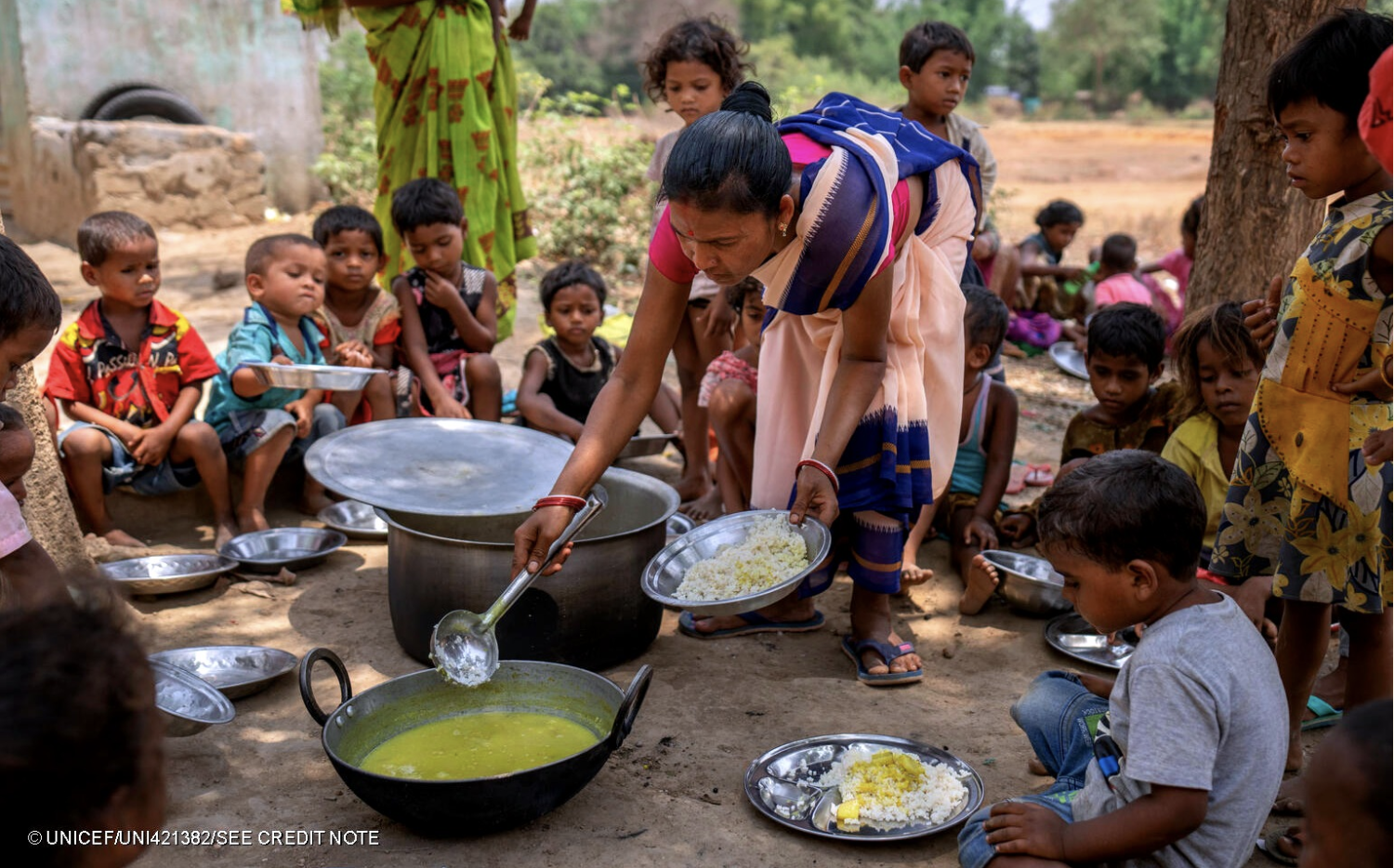
Newsletters
Fortification is one of the globally recognized, safe and cost-effective approaches to address vitamin, mineral and nutrient deficiencies amongst populations. The process of fortification involves del...
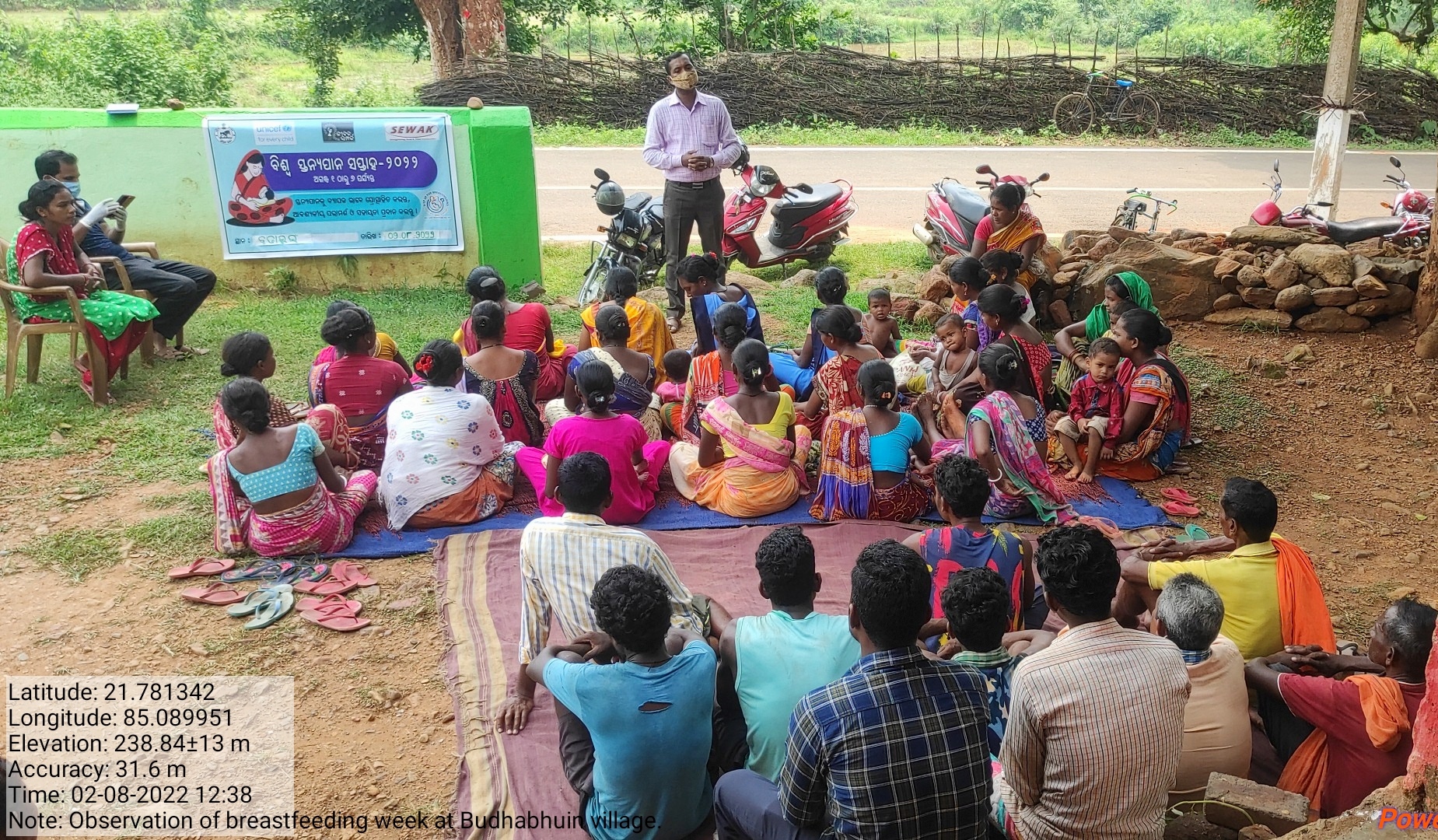
Human Interest Stories
As a warm breeze rustles the bamboo stalks outside her hut, Rekha sits inside and lovingly holds her new-born daughter close, to feed her. Recalling the instructions given by her village’s ASHA just t...
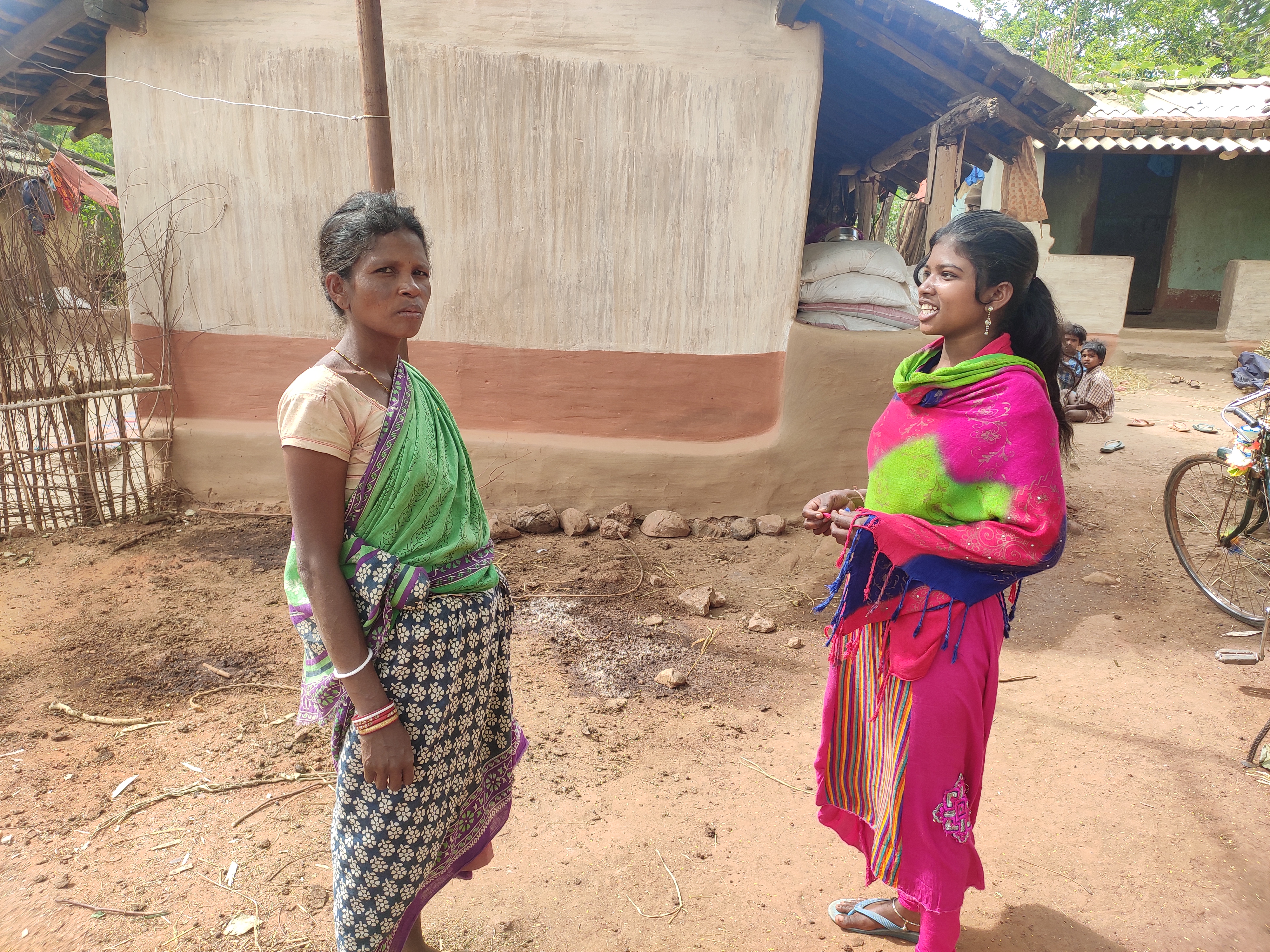
Human Interest Stories
Thirty-seven kilometres away from the district headquarters of Keonjhar in Odisha, nestled amidst hills and thickets, lies the village of Jamudiha. This community is home to Bharati Juanga, a 17-year-...
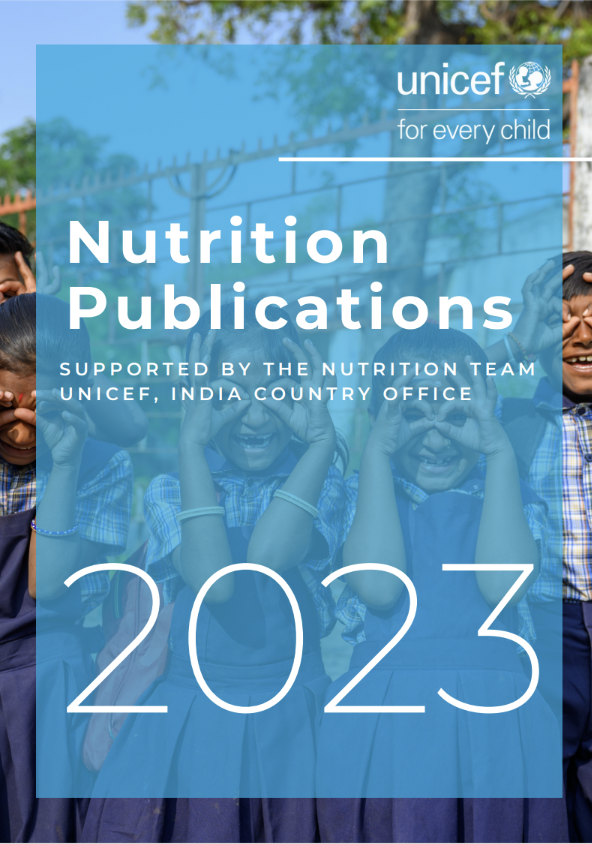
Other technical publications and reports
In our collective mission to ensure every child receives the vital nutrition needed for optimal growth towards a healthy future; it is crucial to facilitate the development of effective nutrition poli...
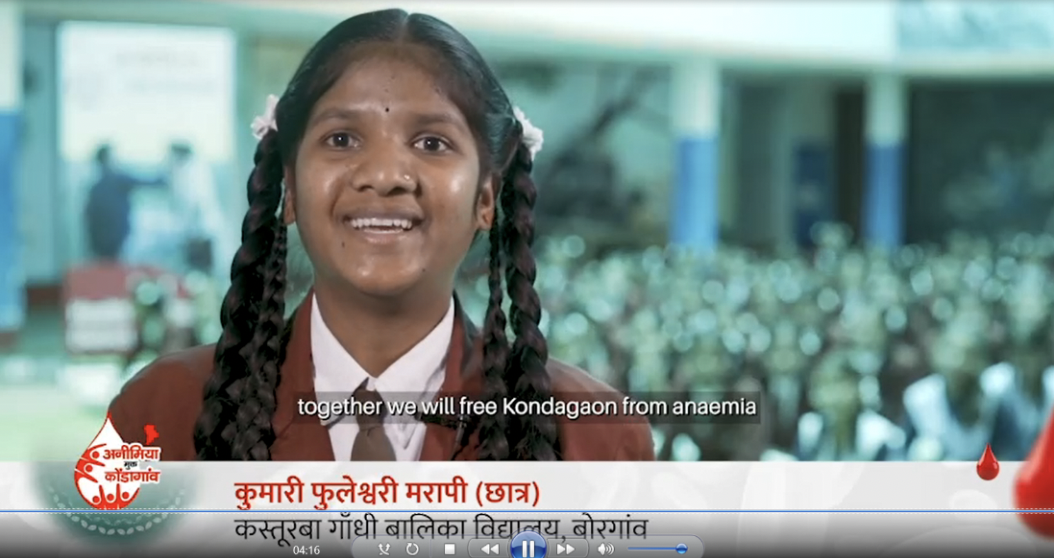
Human Interest Stories
Under the leadership of the national government; Anemia Mukt Bharat was launched in 2018. Since then, state and district administrative bodies have been playing a pivotal role in implementing the prog...
None
The “Knowledge at UNICEF (K@U)” platform (https://knowledge.unicef.org) is an official UNICEF digital web platform which provides offices with the ability to easily share UNICEF technical knowledge pr...
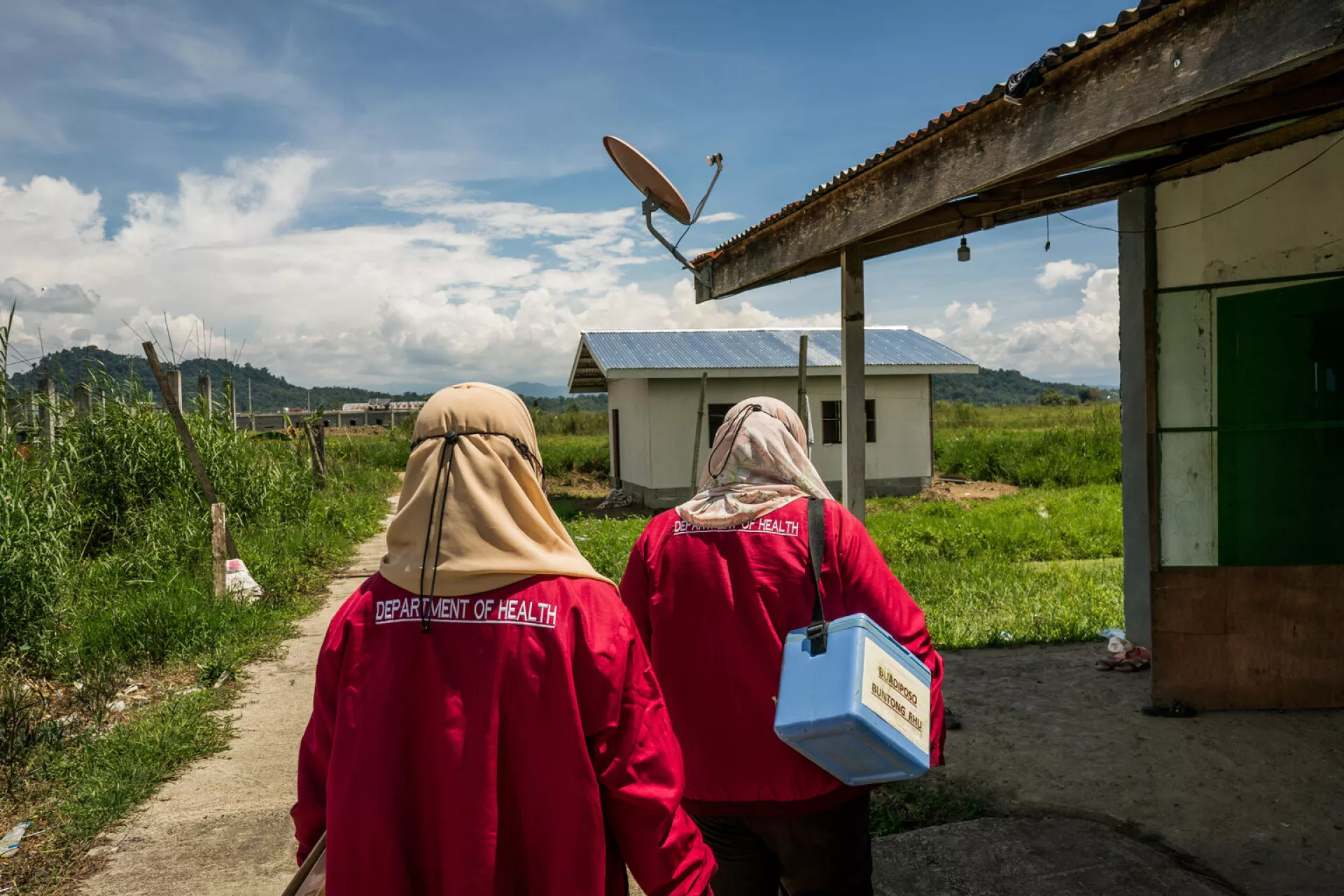
Guidelines/SOPs/checklists
This Resource Guide sets out a method for identifying and addressing public finance challenges to health service delivery using Problem Driven Iterative Adaptation (PDIA). The resource guide sets out ...

Toolkit/Toolbox
This handbook focuses on a specific set of applications of geospatial data and technologies in support of microplanning, and thus complements other existing guidelines on the microplanning process. Ul...
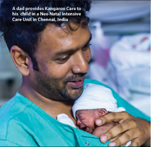
Case studies, lessons learned, field notes
A series of consultations in India between 2018 and 2021 has guided the adaptation of the MAMI Care Pathway Package (an integrated care model) to the Indian context, to strengthen policy provision and...

